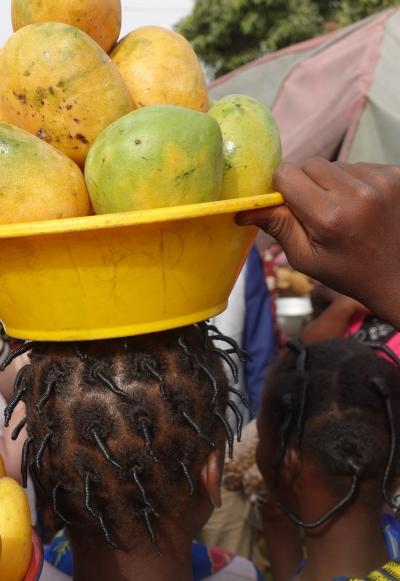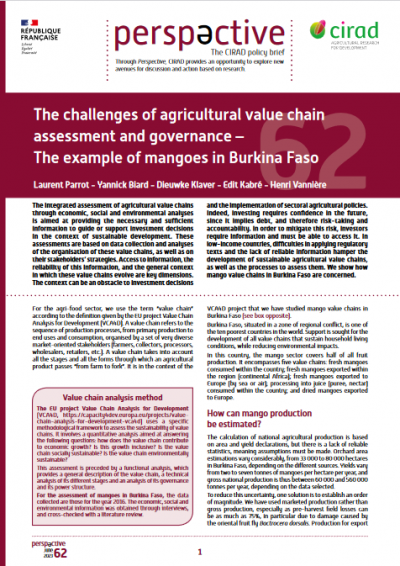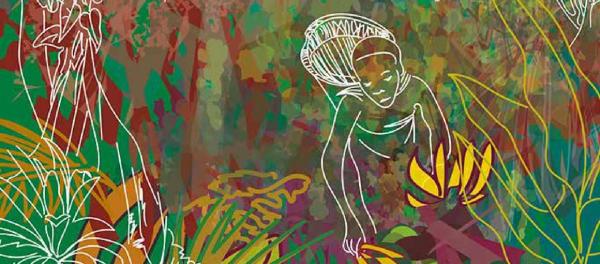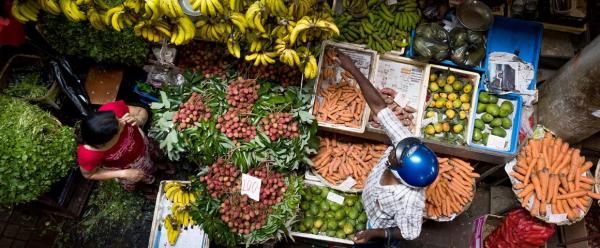Just out 15 April 2024
- Home
- CIRAD news
- News
- Deciphering the mango value chain in Burkina Faso
The mango value chain in Burkina Faso: taking the weight of the informal sector seriously
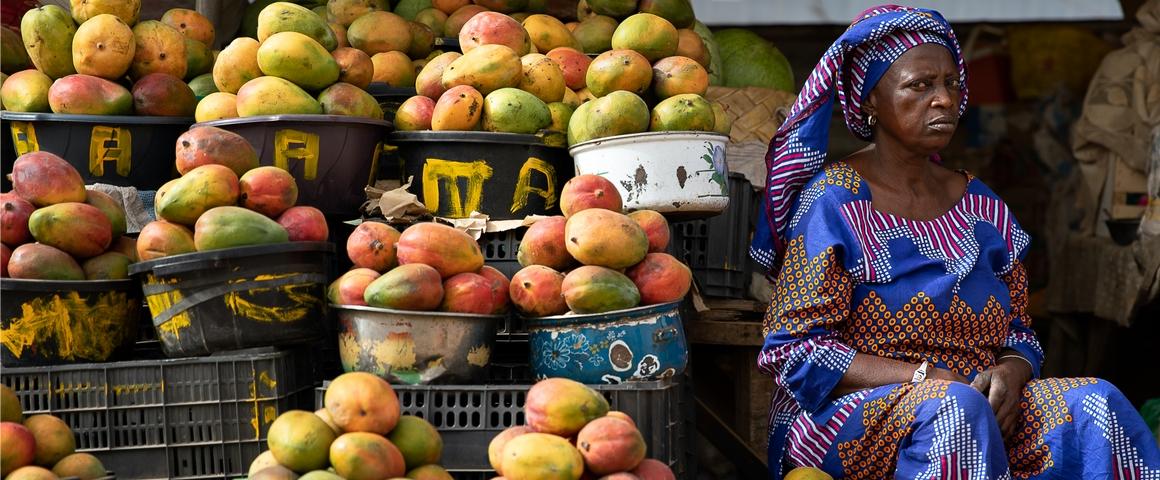
Despite the substantial economic weight of the mango value chain in Burkina Faso, social and health conditions for people working in the sector are poor © R. Belmin, CIRAD
The latest issue of Perspective, the CIRAD policy brief, contains the results of a study by the VCA4D project (see box): the mango value chain in Burkina Faso. Domestic consumption and exports, fresh or processed mangoes, farmers, trackers, retailers, and so on…: the scientists give an overview of the chain and the 28 000 people it employs in the country.
The value chain accounts for almost 3% of the gross domestic product generated by Burkina Faso's agricultural sector. Despite its substantial economic weight, social and health conditions for people working in the sector are poor. For instance, 99% of them do not benefit from any social protection mechanisms (health, unemployment, pensions, etc). Their working conditions are not always in line with international standards, either in the fields or in dried mango or mango juice factories. In environmental terms, mango transport is the main source of impacts, due to substantial GHG emissions. Dried mango processing also consumes significant amounts of fossil gas, as does transporting large quantities of fresh mangoes.
In addition to that contextual information, the study describes the actual structure of the country's mango value chains. The main obstacles to political decision making - difficulties applying legislation, land tenure issues, and above all the weight of the informal sector - are clearly set out. For instance, investment is hampered by the high risks stakeholders in the sector have to take to guarantee an income, hence decent living conditions.
In the face of great precarity, the informal sector provides people with survival strategies and ensures solidarity. The recommendations made in the publication include a call for a better understanding of these rationales. Looking beyond the conventional split between "traditional " and "modern" would make public action much more efficient.
An integrated assessment of agricultural value chains led by Agrinatura, VCA4D and CIRAD is a prime example of how inter-institutional cooperation can benefit sustainable development. It also sets a good precedent for operational and scientific interdisciplinarity centring on a shared topic.
The EU Value Chain Analysis for Development (VCA4D) project set itself an ambitious target: to understand and measure the sustainability of agricultural value chains in various tropical countries. Between 2016 and 2025, the project's scientific members will be working to define a shared assessment method centring on the three pillars of sustainable development: economic, social and environmental.
From cocoa in Cameroon to banana in the Dominican Republic, more than 40 value chains have so far been studied in detail. Those value chains cover every stage of production and processing of agricultural products: farmers, collectors, processors, wholesalers, retailers, etc., up to consumers.
The results of those studies have highlighted the contribution agricultural value chains make to economic development in the country concerned, their inclusive nature and their environmental resilience. The priorities, issues and obstacles are now clearly identified. This information is vital for making policy and investment decisions, in both research and financial terms.
Download Perspective 62
Perspective
With Perspective, CIRAD sets out to suggest new lines of debate and action, backed up by research work, albeit without presenting an official institutional position.
This series of 4-page summaries presents novel ideas or policies on development issues of strategic importance for countries in the South: food security, land tenure, climate change, energy security, forest management, standards, etc.
























